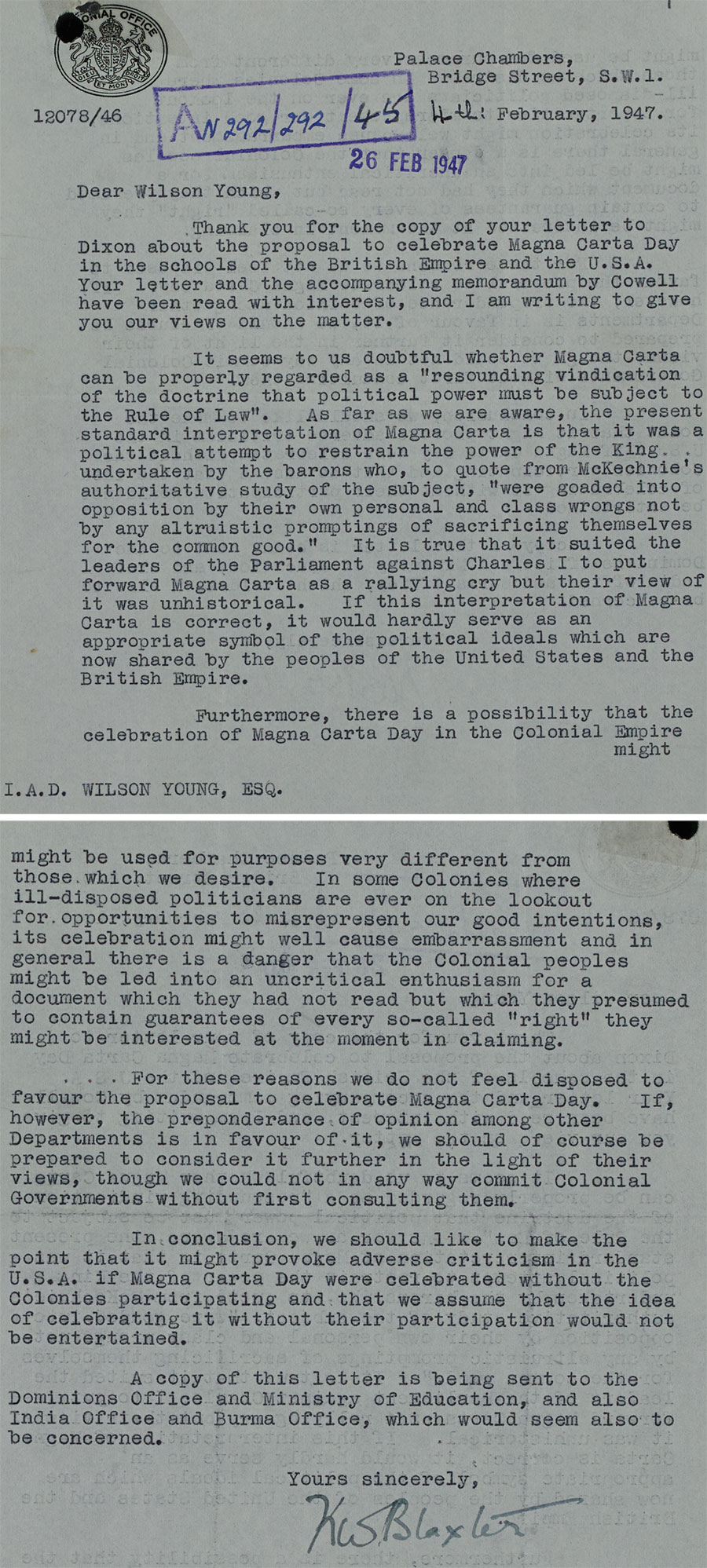Foreign Office document outlining the reasons for the rejection of the proposal that schools in the USA and throughout the British Empire should celebrate Magna Carta day on 15 June. Dated 1947 (FO 371/61073).
Transcript
4th February, 1947
Dear Wilson Young,
Thank you for the copy of your letter to Dixon about the proposal to celebrate Magna Carta Day in the schools of the British Empire and the U.S.A. Your letter and the accompanying memorandum by Cowell have been read with interest, and I am writing to give you our views on the matter.
It seems to us doubtful whether Magna Carta can be properly regarded as a “resounding vindication of the doctrine that political power must be subject to the Rule of Law.” As far as we are aware, the present standard interpretation of Magna Carta is that it was a political attempt to restrain the power of the King undertaken by the barons who, to quote from McKechnie’s authoritative study of the subject, “were goaded into opposition by their own personal and class wrongs not by any altruistic promptings of sacrificing themselves for the common good.” It is true that it suited the leaders of the Parliament against Charles I to put forward Magna Carta as a rallying cry but their view of it was unhistorical. If this interpretation of Magna Carta is correct, it would hardly serve as an appropriate symbol of the political ideals which are now shared by the peoples of the United States and the British Empire.
Furthermore, there is a possibility that the celebration of Magna Carta Day in the Colonial Empire might be used for purposes very different from those which we desire. In some Colonies where ill-disposed politicians are ever on the lookout for opportunities to misrepresent our good intentions, its celebration might well cause embarrassment and in general there is a danger that the Colonial peoples might be led into an uncritical enthusiasm for a document which they had not read but which they presumed to contain guarantees of every so-called “right” they might be interested at the moment in claiming.
For these reasons we do not feel disposed to favour the proposal to celebrate Magna Carta Day. If, however, the preponderance of opinion among other Departments is in favour of it, we should of course be prepared to consider it further in light of their views, though we could not in any way commit Colonial Governments without first consulting them.
In conclusion, we should like to make the point that it might provoke adverse criticism in the U.S.A. if Magna Carta Day were celebrated without the Colonies participating and that we assume that we assume that the idea of celebrating it without their participation would not be entertained.
A copy of his letter is being sent to the Dominions Office and Ministry of Education, and also India Office and Burma Office, which would seem also to be concerned.
Yours sincerely,
KW Blaxlen
